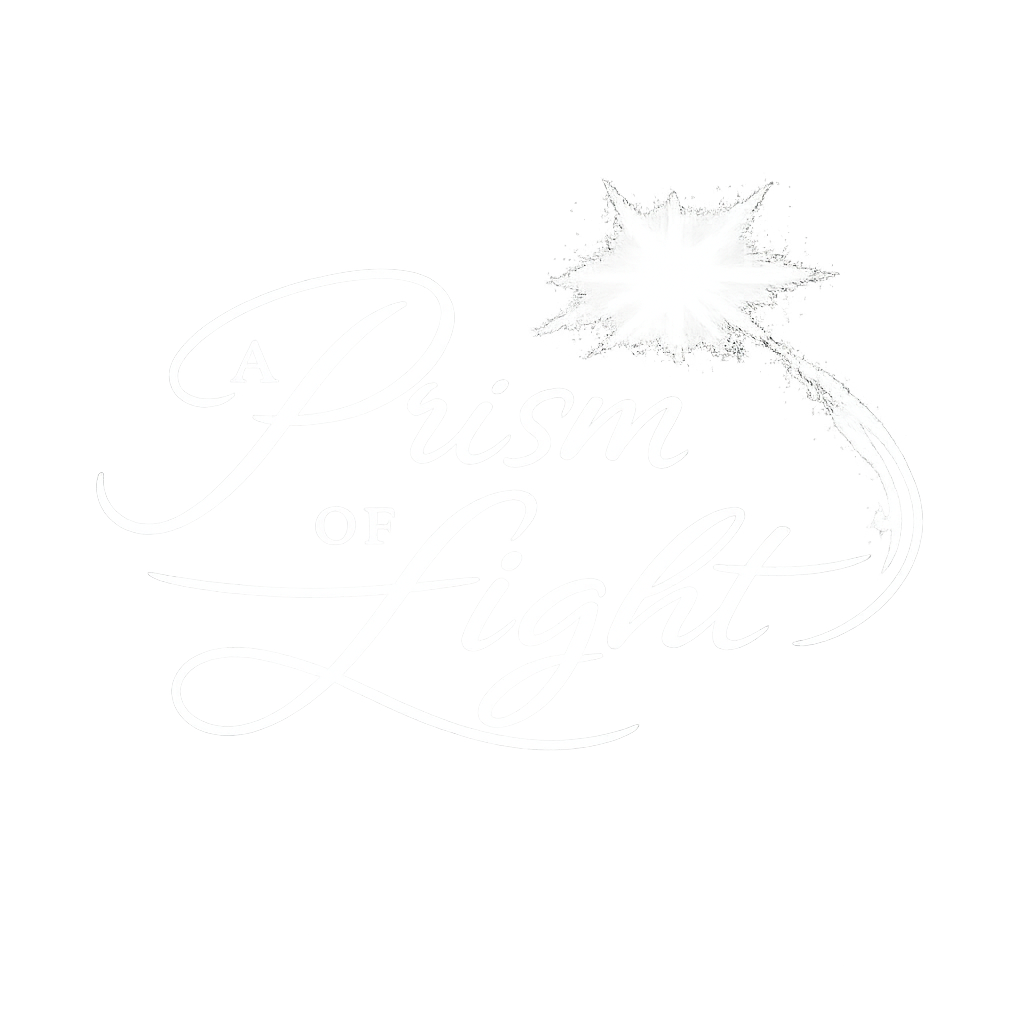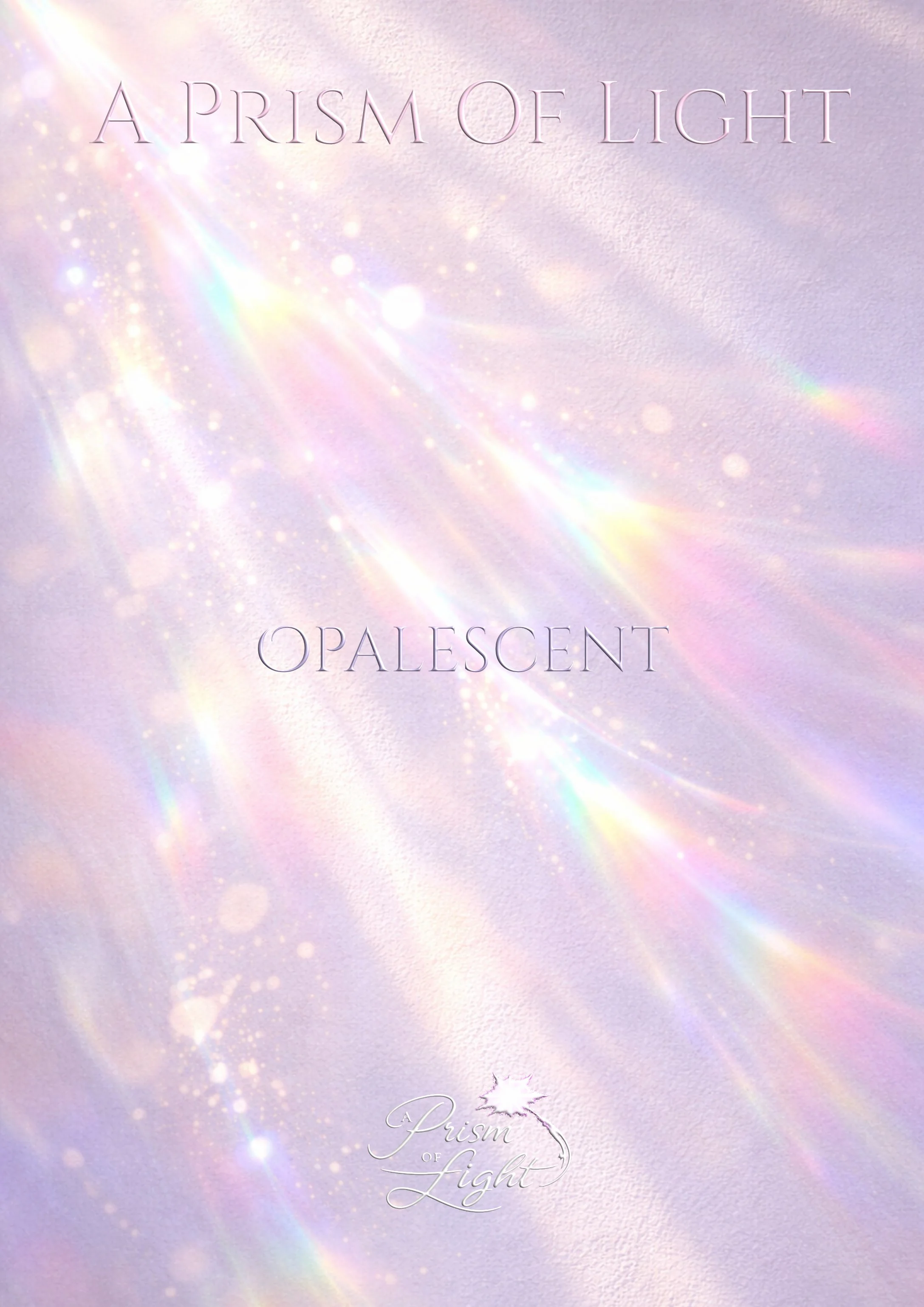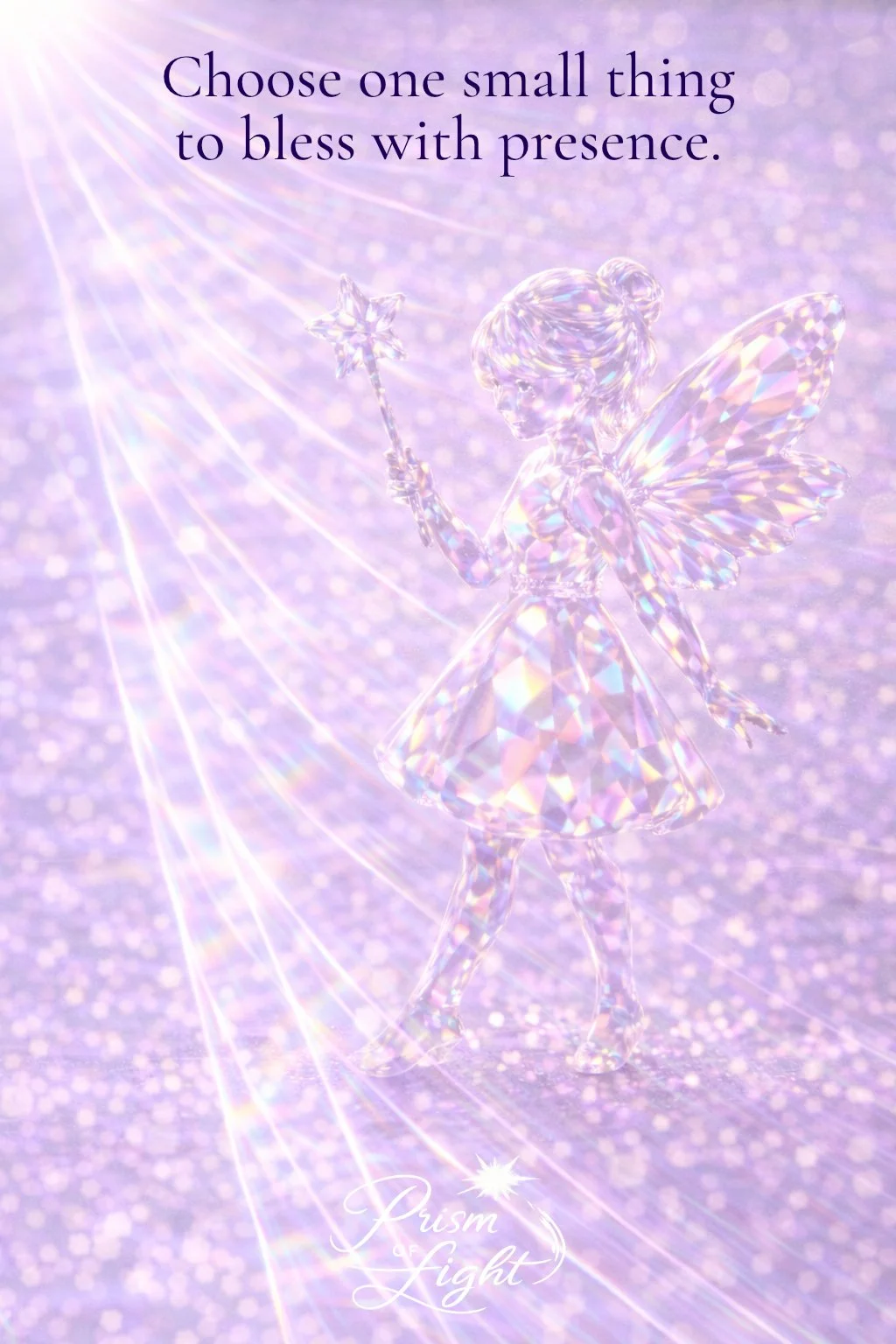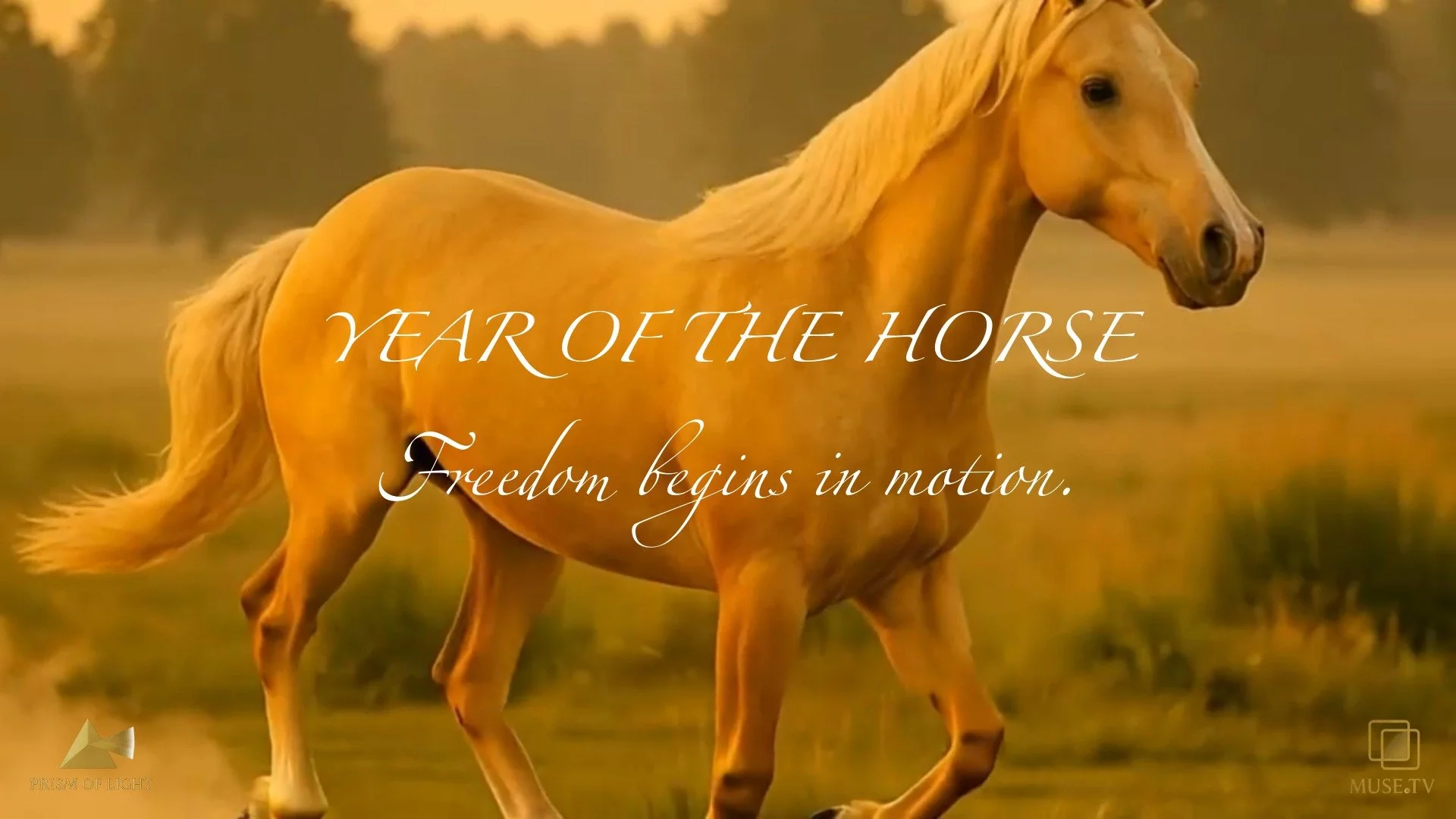
A Prism Of Light
Compose beautiful days, brushed with A Prism Of Light.
Opalescent is releasing soon!
Blessings of light, softness, and quiet wonder.
A small companion for tender days—when softness matters more than answers.
A little light, on purpose
There are days when you don’t need a breakthrough.
You need a small, intentional kindness—aimed directly at the part of you that’s tired.
This image reminds me that light can be chosen.
Not as denial.
Not as performance.
But as a practice: a quiet decision to look for what is still possible, even in a dim week.
A wand doesn’t change the world.
It points.
It directs attention.
It gathers scattered focus into one gentle beam.
That is what you can do today.
Choose one small thing to bless with presence:
a cup of water,
a single task,
a message you’ve been postponing,
a few minutes of air and space.
Not to make the day impressive—
only to make it livable.
If your heart feels heavy, let the light be small.
If your mind feels loud, let the light be steady.
If you feel behind, let the light be kind.
Compose beautiful days—
not by forcing brightness,
but by choosing one tender angle
and letting it be enough for now.
— Prism of Light
MUSE.TV: Prism of Light is a culture imprint committed to amplifying human truth through art—elevating creators, honoring lived experience, and using storytelling to cultivate awareness, dignity, and connection.
From Snake to Horse: A Year Turning Toward Healing
There are years that ask us to become still enough to hear ourselves.
And there are years that ask us to move — not away from what hurt us, but toward what helps us live.
The Chinese zodiac carries this rhythm beautifully.
The Snake and the Horse are neighbors in the cycle — a passage from inner transformation to outward renewal.
As we move from the Year of the Snake into the Year of the Horse, we are invited into a story of healing that begins in quiet wisdom… and continues into courageous motion.
🐍 The Snake Year — Healing Through Shedding
The Snake is a keeper of deep intuition.
In Chinese tradition, Snake years are linked with wisdom, strategy, and transformation.
Snakes heal in a way nature understands:
by shedding what no longer fits.
Not all growth is loud.
Sometimes healing looks like:
noticing what your body has been carrying
listening to the truth under the noise
letting old survival patterns loosen
allowing a new self to emerge, slowly and safely
The Snake reminds us that recovery is not a performance.
It’s a return — a quiet reintroduction to your inner voice.
Transformation can feel tender.
And change can be brave.
Snake medicine says:
“You are allowed to outgrow what happened to you.”
🐎 The Horse Year — Healing Through Forward Motion
Then comes the Horse.
Horse years symbolize energy, freedom, vitality, momentum, and confident movement.
After the shedding, there is breath.
After the inward work, there is the road.
Horse healing is not about rushing.
It’s about reclaiming motion on your own terms.
The Horse teaches:
your life belongs to you
your joy is not something you must earn
your body is not only where harm happened — it is also where strength lives
freedom can be practiced in small steps
hope can be rebuilt through movement, community, and choice
Horse energy isn’t denial of pain.
It is the decision to keep going while holding tenderness.
Horse medicine says:
“You are not trapped in the past. You are allowed to move forward.”
🌗 The Bridge Between Them — From Survival to Life
Snake year asks:
What must be released so healing can begin?
Horse year asks:
What becomes possible when you trust your life again?
Together they form a path many survivors know:
Awareness — naming what is true.
Prevention — building safety through insight and community care.
Healing — returning to movement, beauty, and connection.
This transition is not a switch.
It is a gentle crossing.
From the quiet courage of shedding…
to the brave joy of becoming.
🕊 Closing Invitation
If you are crossing into a new year carrying old pain,
know this:
Healing is not linear.
But it is real.
Some seasons teach us to shed.
Some seasons teach us to rise.
May the Snake bring you clarity.
May the Horse bring you freedom.
And may you move into the light one meaningful moment at a time.
Awareness • Prevention • Healing
Prism of Light on MUSE.TV

Compose beautiful days brushed with a prism of light.
In the velvet hush of the starry night, behold the Goddess of Celestial Harmony—her silver tresses flowing like moonlight rivers, her crystal-adorned gaze serene and knowing. With a enchanted brush dipped in iridescent aura, she weaves prismatic magic upon her canvas, splintering hues of hope and transcendence into a symphony of dawn's promise.
Pause, breathe, and let the divine feminine illuminate your path to inner peace and wonder.
Prism of Light
I did not come to brighten your days.
I came to show you how to turn them.
Each morning arrives already carrying color,
even when it looks like gray.
The difference is not in the day itself,
but in the angle at which you hold it.
Compose your days as you would a piece of music—
with pauses, with repetitions,
with tenderness for what does not resolve immediately.
Let light brush them, not flood them.
Let meaning emerge through refraction, not force.
Some experiences will feel dull until you tilt them.
Some truths will feel sharp until they are broken open
into gentler hues.
This is not avoidance.
This is accuracy.
You are allowed to live without spectacle.
You are allowed to find beauty in what repeats.
A beautiful day is not made by brightness alone,
but by the care with which you arrange
what is already there.
So take what arrives—
the unfinished, the real—
and hold it to the light.
You will see: nothing needed to change.
It only needed to be brushed
with a prism of light.
Nature Notes: Summer’s Last Light — Clouds, Thistle, and Sunflowers
As summer leans toward its close, the world holds a quiet magic — a soft, golden light brushing everything with a final kiss before autumn begins to whisper in. It is a time to pause, breathe deeply, and notice the simple wonders still unfolding.
Look up. The sky is a living canvas — wisps of cirrus trailing like fading brushstrokes, towering cumulus castles melting slowly into the horizon. Each cloud drifts with a story, inviting you to imagine, to wonder, to dream.
On the ground, thistles stand tall — spiny sentinels crowned with delicate purple blooms, guardians of the wild. They catch the sun’s rays like small beacons, quiet reminders of resilience and beauty in unexpected places.
Nearby, sunflowers turn toward the sinking sun, their golden petals glowing warmly even as the days grow shorter. They are the steadfast ones — holding their light until the very end, embodying summer’s boundless generosity.
In these last days of the season, walk slowly. Find a thistle to admire, watch the clouds drift, and savor the sunflower’s farewell glow. Let nature’s rhythms remind you to be present — to honor endings as much as beginnings, and to carry a little light forward into what comes next.
···
A golden farewell to summer — where drifting clouds, steadfast blooms, and the quiet touch of nature remind us to notice beauty, find healing, and hold its light as we cross into the new season.
Within Prism of Light, this becomes more than a scene — it is visual poetry and emotional medicine, a space where the beauty before us mirrors the quiet transformations within.







